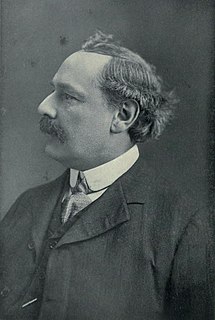A Quote by Mary Elizabeth Coleridge
The fruits of the tree of Knowledge are various; he must be strong indeed who can digest all of them.
Related Quotes
Where faith commences, science ends. Both these arts of the human mind must be strictly kept apart from each other. Faith has its origin in the poetic imagination; knowledge, on the other hand, originates in the reasoning intelligence of man. Science has to pluck the blessed fruits from the tree of knowledge, unconcerned whether these conquests trench upon the poetical imaginings of faith or not.
Enquire: 'Who am I?' and you will find the answer. Look at a tree: from one seed arises a huge tree; from it comes numerous seeds, each one of which in its turn grows into a tree. No two fruits are alike. Yet it is one life that throbs in every particle of the tree. So, it is the same Atman everywhere.
Do you know that even when you look at a tree and say, `That is an oak tree', or `that is a banyan tree', the naming of the tree, which is botanical knowledge, has so conditioned your mind that the word comes between you and actually seeing the tree? To come in contact with the tree you have to put your hand on it and the word will not help you to touch it.
Fall leaves are brilliant with gold and red. You can cup them in your hand and wonder at them, be amazed at their uniqueness and glory. But eventually they are gone, brown, crumbling, scattered on the wind. But the tree remains. The tree is what is important. The tree lives on. That was a difficult knowledge to bear, and an even more difficult life to live. Of course, being the leaf wasn't exactly desirable either.
In every forest, on every farm, in every orchard on earth, it's what's under the ground that creates what's above the ground. That's why placing your attention on the fruits that you have already grown is futile. You cannot change the fruits that are already hanging on the tree. You can, however, change tomorrow's fruits. But to do so, you will have to dig below the ground and strengthen the roots.






































